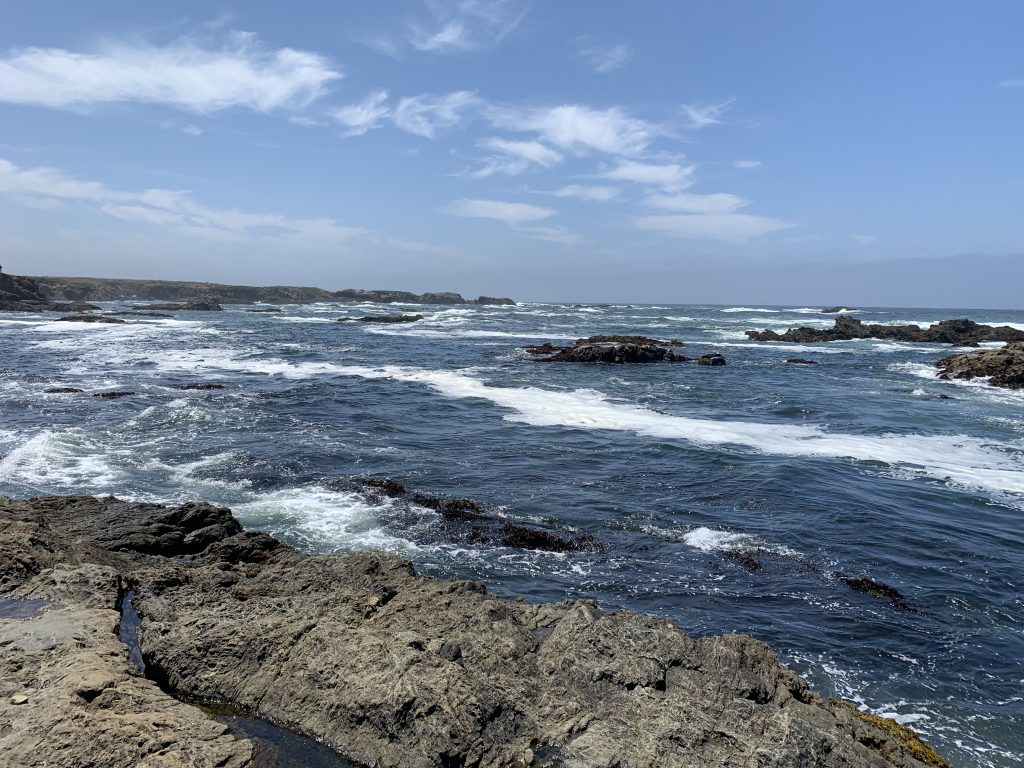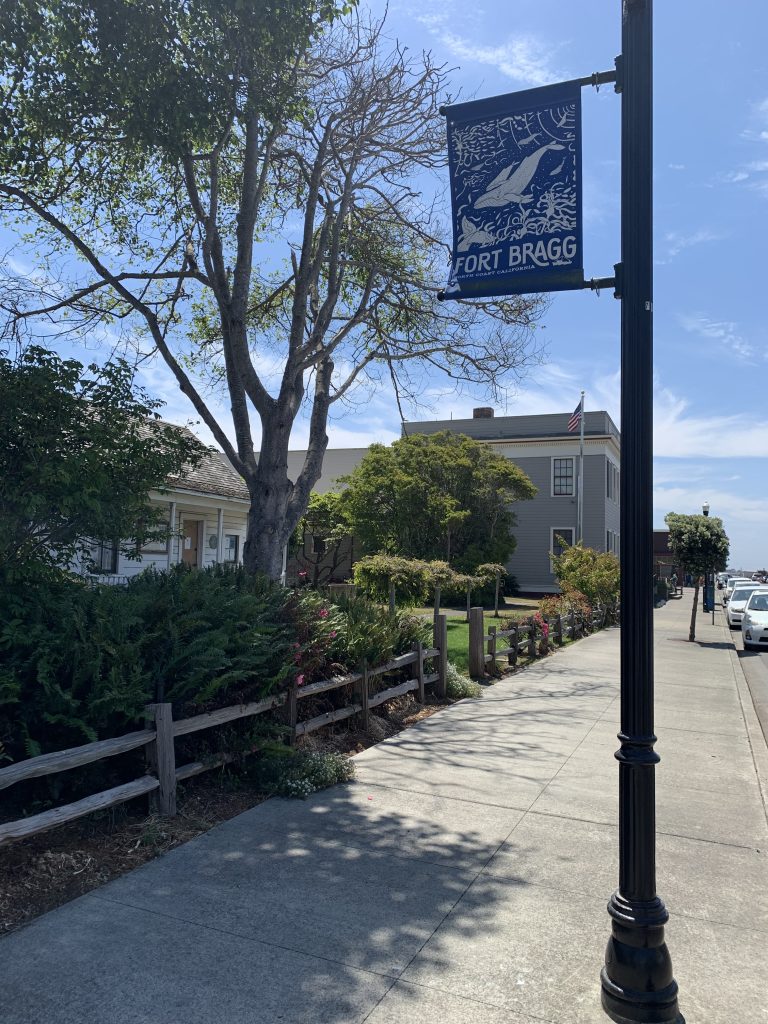Civil War Encounters Touring the West: Part Four – Fort Bragg…California
After leaving San Francisco, Brittany and I continued on our road trip by driving north towards the redwoods! There was one major detour that my wife Brittany wanted to take to see California’s famed glass beach. So, we detoured to California State Route 1 and made our way. Arriving about midday, we stopped for lunch before heading to the beach itself. Fantastic views all around, and my wife found a bunch of sea glass on the beach while there! Of course, there is a Civil War connection, and this time it is the location itself. The glass beach is in the city of Fort Bragg, California.

First off, yes, Fort Bragg, CA is in fact named for none other than Confederate General Braxton Bragg, though Bragg never actually spent any time there. The town is built on the site of a military camp bearing the same name. Established in 1857, Fort Bragg the encampment was supposed to help oversee settling populations along the coastline and ensure that local Indigenous populations were confined to a nearby reservation. First Lieutenant Horatio G. Gibson oversaw the fort, naming it after his former commanding officer.
When the Civil War began, the regular soldiers garrisoning Fort Bragg were sent east, replaced by California volunteers. In 1864, these troops abandoned the position completely. By 1866, the reservation was discontinued and Indigenous peoples there relocated. By 1889, the city of Fort Bragg was incorporated by settlers that had moved into the region after the war.

Fort Bragg has one historic building dating back to its time as a fortification. A sign states it was the fort’s original quartermaster’s storage and commissary building. The building is not in its original location, but sits next door to Fort Bragg’s city hall. There are also some museums in the town, both looking at local history as well as the sea glass beach.

Being somewhat connected to the Civil War and the Confederacy by name, the city has also recently joined the debate about places named after Confederate leaders. In 2020, Fort Bragg’s mayor formed a committee of city council members and citizens to discuss and debate a potential name change. They looked at a complete renaming, as well as potentially rededicating the city to another person named Bragg.[1] In 2022, the committee closed without any final determination.[2] Fort Bragg has retained its name to date, unlike the military post in North Carolina that renamed earlier in 2023 and now bears the name Fort Liberty.
Stay tuned for the next Civil War stop in my travels through Utah, Nevada, California, and Oregon. Next stop: Fort Klamath, Oregon!
Endnotes:
[1] Hailey Branson-Potts, “California city named for a Confederate general will not put name change on November ballot,” Los Angeles Times, June 23, 2020, https://www.latimes.com/california/story/2020-06-23/fort-bragg-name-change-confederate, accessed August 9, 2023.
[2] Mary Callahan, “Fort Bragg citizen group unable to reach consensus on name change,” The Press Democrat, January 25, 2022, https://www.pressdemocrat.com/article/news/fort-bragg-citizen-group-unable-to-reach-consensus-on-name-change/, accessed August 9, 2023.
Thank you for a great series of articles Neil. I am enjoying them very much. Safe travels and enjoy the rest of your trip.
Could the argument be made that Bragg was the reason for the Confederacy’s defeat? Did he not poison a whole army, with backbiting accusations of all his subordinates? Did he not help Thomas become the Rock of Chickamauga? Did he not help Brigadier General Grant become General of the Army Grant?
Fort Bragg City, bearing the name of one of the Confederacy’s leastest successful generals, should stay with the name, and maybe one distant day, many horizons from now, when all other echo’s of the names Lee, Jackson, Stuart, and the rest have faded into oblivion, his name, one that is “synonymous with disaster,” to quote the New York Times 3/11/1864, will be the most well known of that distant rebellion.
Hard for us, born so much closer to the war than our grandchildren’s grandchildren, to imagine, but hard, too, to believe that 9/11 will be forgotten, which, it has been said, history says it will.
Talk about sensationalizing with misinformation. This article is historically inaccurate. When the town of Fort Bragg was incorporated it was named named after the place/area on the Mendocino Coast (isolated and difficult to access) which had a military garrison that never reached the status of an actual fort. The fort had been named after a Mexican-American war hero. At least a hero in the mind of the subordinate who designated the name. The Civil War followed the name given to the place. This really upsets me because Fort Bragg is the home of my family going back generations. Changing the name would be emotionally upsetting, and disorienting to numerous local people, whom now represent just another oppressed minority. My great-great grandmother was Native American and I was raised not be to racist. I think the Mexican-American War is a neglected piece of California history. Please correct your inaccurate history before post or publication.
What “misinformation?” Fort Bragg began as Camp Bragg, and was quickly renamed by Lt. Gibson with the Army’s permission. The US Army recognized it as a Fort in many orders to the garrison there. There was an Army request to change the name after Bragg’s treason, but the fort was abandoned before the change could be processed. The role of the fort was to be a concentration camp for the indigenous tribes who had lived along the coast for over 10K years. Their community and culture was wiped out by the invading whites in the space of less than 30 years. After the remaining inmates had been forced-marched off to the Round Vally reservation, the lands of the reservation were sold off to the locals who then built a town, and incorporated it in 1889, naming it Fort Bragg to commemorate what had gone before.